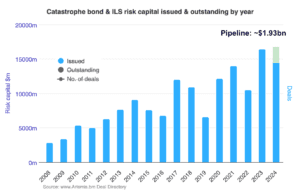How much does it cost to get a traditional universal life insurance policy?

If you’re considering purchasing a traditional universal life insurance policy, one of the most important factors to consider is the cost. Understanding the factors that influence the cost can help you make an informed decision and find the right policy for your needs and budget.
Understanding Universal Life Insurance
Before diving into the cost of a traditional universal life insurance policy, it’s essential to understand what it is. Universal life insurance is a type of permanent life insurance that provides both a death benefit and a savings or investment component. It offers flexibility in premium payments and benefits, making it an attractive option for many individuals.
When you purchase a universal life insurance policy, you are not only securing a death benefit for your loved ones but also building cash value over time. This cash value grows based on the premiums you pay and the interest earned on your policy’s investments. It serves as a savings or investment component, allowing you to potentially accumulate wealth while ensuring financial protection for your family.
One of the key features of universal life insurance is its flexibility. Unlike other types of life insurance, universal life insurance allows you to adjust your premium payments and death benefit amounts to meet your changing needs and circumstances. This means that if you experience a financial setback, you can lower your premiums temporarily without losing the coverage altogether.
What is Universal Life Insurance?
Universal life insurance is a type of permanent life insurance that allows policyholders to build cash value over time. It provides lifelong coverage and offers flexibility in premium payments and death benefit amounts. The policyholder can adjust these features to meet their changing needs and circumstances.
Unlike term life insurance, which provides coverage for a specific period, universal life insurance offers lifelong protection. This means that as long as you continue to pay your premiums, your policy will remain in force, providing financial security for your loved ones even after you’re gone.
Moreover, universal life insurance policies come with a savings or investment component. As you make premium payments, a portion of that money goes into a cash value account. This cash value grows over time, and you can access it during your lifetime, either by taking out a loan against it or withdrawing a portion of it. This added flexibility can be particularly helpful in times of financial need, such as paying for your child’s education or covering unexpected medical expenses.
Key Features of Universal Life Insurance
Universal life insurance policy has several key features that differentiate it from other types of life insurance. These include the ability to accumulate cash value, flexible premium payment options, adjustable death benefit, and potential tax advantages.
Accumulating cash value is one of the most significant advantages of universal life insurance. As you continue to pay your premiums, the cash value of your policy grows. This cash value can be used in various ways, such as supplementing your retirement income, funding a business venture, or leaving a financial legacy for your loved ones.
Flexibility is another key feature of universal life insurance. Unlike term life insurance, where the premium payments are fixed for a specific period, universal life insurance allows you to adjust your premium payments based on your financial situation. If you find yourself facing financial difficulties, you can lower your premium payments temporarily or even skip a payment, as long as you have enough cash value in your policy to cover the costs.
Additionally, universal life insurance offers an adjustable death benefit. This means that you can increase or decrease the amount of coverage throughout the life of your policy. If your financial obligations change, such as paying off a mortgage or when your children become financially independent, you can adjust your death benefit accordingly to align with your current needs.
Lastly, universal life insurance may offer potential tax advantages. The cash value growth in your policy is tax-deferred, meaning you won’t have to pay taxes on the growth until you withdraw the funds. Additionally, the death benefit paid out to your beneficiaries is typically tax-free, providing them with a financial safety net without any tax burden.
Enter your ZIP code below to compare cheap life insurance rates.
Secured with SHA-256 Encryption
Factors Influencing the Cost of Universal Life Insurance
When it comes to purchasing a universal life insurance policy, there are several factors to consider that can influence the cost. By understanding these factors, you can gain insight into how much you can expect to pay for the coverage you need, and make an informed decision.
Age and Health Status
One of the primary factors that insurance companies take into account when determining the cost of universal life insurance is the age and health status of the individual. Generally, younger individuals and those in good health tend to pay lower premiums. This is because they are considered to be lower risk for the insurance company. As individuals age or develop health conditions, the risk increases, resulting in higher premiums.
For example, a 25-year-old individual who is in excellent health may pay significantly less for a universal life insurance policy compared to a 55-year-old individual with pre-existing health conditions.
It’s important to note that insurance companies may require applicants to undergo a medical examination or provide medical records to assess their health status accurately.
Policy Features and Benefits
The features and benefits you select for your universal life insurance policy also impact the cost. Insurance companies offer various policy riders that can be added to enhance the coverage. However, these additional riders can increase the premium.
For instance, if you choose to include a disability income rider or a long-term care rider, the cost of your universal life insurance policy will likely be higher. These riders provide additional financial protection in the event of disability or the need for long-term care, but they come at an added expense.
Moreover, the level of coverage and the length of the policy term can also affect the cost. Generally, the more comprehensive the coverage and the longer the term, the higher the premium.
Insurance Company Rates
It’s essential to understand that each insurance company sets its rates based on their underwriting standards and risk assessments. This means that there can be significant variations in premiums between different insurers for the same coverage amount and features.
For example, one insurance company may offer a more competitive rate for a universal life insurance policy compared to another company, even if the coverage and features are identical. Therefore, it’s crucial to shop around and compare quotes from multiple insurance providers to ensure you get the best value for your insurance policy.
By taking the time to research and compare rates, you can potentially save a significant amount of money over the life of your universal life insurance policy.
In conclusion, when determining the cost of a universal life insurance policy, factors such as age and health status, policy features and benefits, and insurance company rates all play a significant role. By understanding these factors and conducting thorough research, you can make an informed decision that suits your needs and budget.
Average Cost of Universal Life Insurance
The cost of a traditional universal life insurance policy can vary significantly depending on several factors. Let’s explore some average costs based on different age groups and policy sizes.
When it comes to universal life insurance, age plays a crucial role in determining the cost of the policy. Insurance providers consider age as a key factor because it affects the risk associated with insuring an individual. Let’s take a closer look at the average costs based on different age groups:
Cost Comparison Based on Age
Here is a sample cost comparison for a $500,000 universal life insurance policy for individuals of different age groups:
30-year-old: $50 – $100 per month
40-year-old: $75 – $150 per month
50-year-old: $150 – $300 per month
Please note that these figures are approximate and can vary depending on other factors such as health status and desired policy features. Insurance providers take into account the age of the insured individual as it directly impacts the premium amount. Younger individuals generally pay lower premiums as they are considered to be at a lower risk of developing health issues compared to older individuals.
Cost Comparison Based on Policy Size
Similarly, the cost of a universal life insurance policy can vary based on the desired coverage amount. Insurance providers offer different coverage options to cater to the diverse needs of individuals. Here is a general cost comparison for a 40-year-old individual:
$500,000 coverage: $75 – $150 per month
$1,000,000 coverage: $125 – $250 per month
$2,000,000 coverage: $250 – $500 per month
Again, these numbers are estimates and may differ based on additional factors such as health and policy features. Insurance providers take into account the coverage amount when determining the premium. Higher coverage amounts generally result in higher premiums as they provide greater financial protection to the insured individual and their beneficiaries.
When considering the cost of universal life insurance, it’s important to remember that these figures are just averages and can vary depending on individual circumstances. Factors such as overall health, lifestyle choices, and even occupation can influence the premium amount. It’s always recommended to consult with an insurance professional who can provide personalized quotes and help you choose the right policy that aligns with your specific needs and budget.
Ways to Reduce the Cost of Universal Life Insurance
While the cost of universal life insurance can be significant, there are ways to reduce premiums and make it more affordable. Consider the following strategies:
Maintaining Good Health
Staying healthy is not only essential for your well-being but can also help lower your insurance premiums. Individuals who maintain a healthy lifestyle, including regular exercise and a balanced diet, often qualify for better rates.
In addition to physical health, mental well-being also plays a role in determining insurance costs. Insurance providers may offer lower premiums to individuals who actively manage stress, practice mindfulness, and engage in activities that promote mental wellness.
Moreover, certain insurance companies offer wellness programs that reward policyholders for adopting healthy habits. These programs may include incentives such as discounted premiums, cash rewards, or access to fitness facilities and resources.
Choosing the Right Policy Features
The more comprehensive the policy features, the higher the cost. Assess your needs and select the features that are essential to you. Avoid unnecessary riders or benefits that you may not require.
When choosing a universal life insurance policy, it’s important to consider your long-term financial goals and the purpose of the policy. Some policies offer investment options that allow you to accumulate cash value over time. While these features can be beneficial, they may also increase the premiums. Evaluate whether the potential benefits outweigh the additional costs.
Furthermore, consider the flexibility of the policy. Some universal life insurance policies allow policyholders to adjust their premiums and death benefits as their financial circumstances change. This flexibility can help you adapt your coverage to your evolving needs without having to purchase a new policy.
Additionally, it’s crucial to review and compare policies from different insurance providers. Each company may have its own pricing structure and policy options. By obtaining quotes and thoroughly researching your options, you can identify the policy that offers the best value for your specific needs.
Enter your ZIP code below to compare cheap life insurance rates.
Secured with SHA-256 Encryption
Pros and Cons of Universal Life Insurance
Before finalizing your decision, it’s essential to consider the advantages and disadvantages of traditional universal life insurance. This will help you make an informed choice based on your unique circumstances.
Advantages of Universal Life Insurance
Universal life insurance offers several advantages, including flexibility in premium payments and death benefits, potential tax advantages, cash value accumulation, and lifelong coverage. It provides a customizable insurance solution that can adapt to your changing needs.
Disadvantages of Universal Life Insurance
On the flip side, universal life insurance may have some drawbacks. It can be more expensive than other types of life insurance, especially if comprehensive coverage is desired. Additionally, the savings or investment aspect of the policy may not perform as expected, resulting in lower cash value growth.
In conclusion, the cost of a traditional universal life insurance policy can vary based on several factors such as age, health status, policy features, and insurance company rates. By understanding these factors and considering ways to reduce costs, you can find a policy that provides the coverage you need at an affordable price. Remember to compare quotes from multiple insurers and assess the pros and cons of universal life insurance before making a decision.
Frequently Asked Questions
What is a traditional universal life insurance policy?
A traditional universal life insurance policy is a type of permanent life insurance that provides both a death benefit and a cash value component. It offers flexible premium payments and allows policyholders to adjust their death benefit and cash value accumulation over time.
How much does a traditional universal life insurance policy cost?
The cost of a traditional universal life insurance policy can vary depending on various factors such as the insured individual’s age, health, gender, and desired death benefit amount. Additionally, the premium payments can be adjusted based on the policyholder’s needs and financial situation.
What are the benefits of a traditional universal life insurance policy?
A traditional universal life insurance policy offers several benefits. It provides lifelong coverage, builds cash value that can be accessed during the policyholder’s lifetime, and allows flexibility in premium payments and death benefit amounts. It can also serve as a tool for estate planning and leaving a financial legacy for loved ones.
Can I borrow against the cash value of a traditional universal life insurance policy?
Yes, one of the advantages of a traditional universal life insurance policy is that you can borrow against the cash value component. This can be useful for various purposes such as covering unexpected expenses, supplementing retirement income, or funding education expenses. However, it’s important to note that borrowing against the cash value will reduce the death benefit if the loan is not repaid.
Can I convert my existing life insurance policy to a traditional universal life insurance policy?
In many cases, it is possible to convert an existing life insurance policy to a traditional universal life insurance policy. However, the options and availability may vary depending on the insurance company and policy terms. It’s advisable to consult with your insurance provider or agent to understand the conversion options and any potential implications.
What happens if I stop paying premiums on a traditional universal life insurance policy?
If you stop paying premiums on a traditional universal life insurance policy, the policy may lapse or enter a grace period depending on the terms of the policy. During the grace period, you may have the option to pay the overdue premiums to keep the policy active. If the policy lapses, the coverage will terminate, and any cash value accumulated may be used to offset outstanding premiums or be surrendered to the policyholder.
Enter your ZIP code below to compare cheap life insurance rates.
Jeffrey Johnson
Insurance Lawyer
Jeffrey Johnson is a legal writer with a focus on personal injury. He has worked on personal injury and sovereign immunity litigation in addition to experience in family, estate, and criminal law. He earned a J.D. from the University of Baltimore and has worked in legal offices and non-profits in Maryland, Texas, and North Carolina.
He has also earned an MFA in screenwriting from Chapman Univer…
Benjamin Carr
Former State Farm Insurance Agent
Benjamin Carr worked as a licensed insurance agent at State Farm and Tennant Special Risk. He sold various lines of coverage and informed his clients about their life, health, property/casualty insurance needs.
Assessing risks and helping people find the best coverage to suit their needs is a passion of his. He appreciates that insurance was designed to protect people, particularly during times…
Former State Farm Insurance Agent
Editorial Guidelines: We are a free online resource for anyone interested in learning more about life insurance. Our goal is to be an objective, third-party resource for everything life insurance-related. We update our site regularly, and all content is reviewed by life insurance experts.





